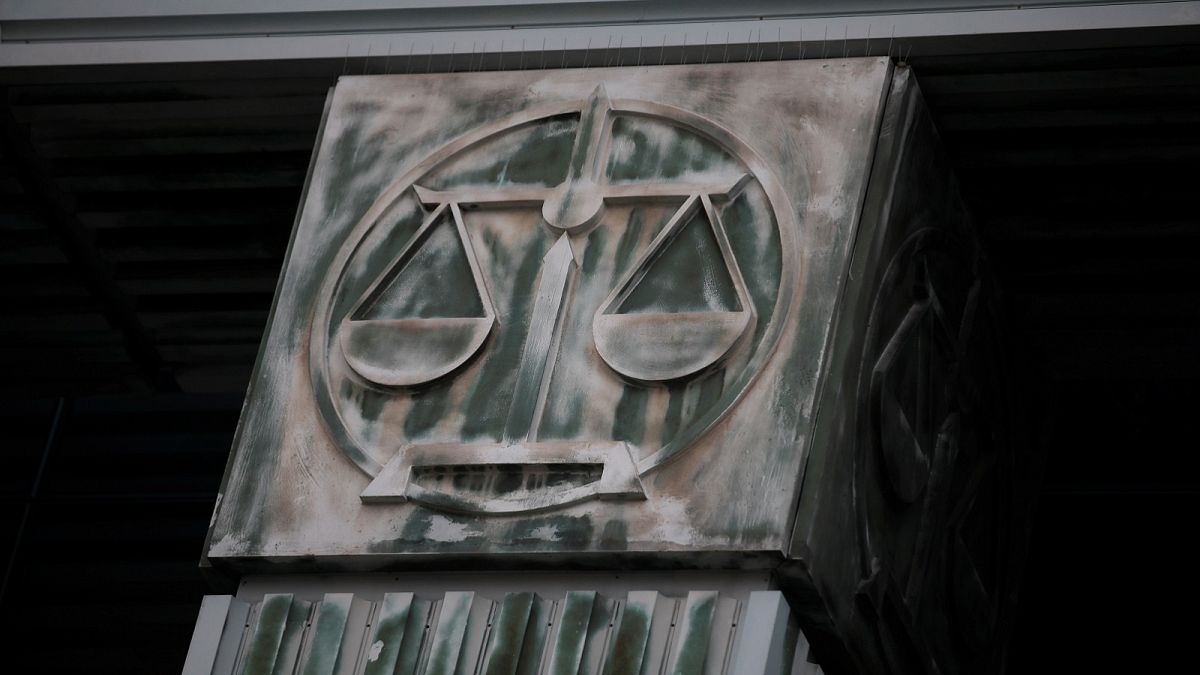“I feel like an entire machinery is against me,” Judge Monika Frąckowiak told me when I met her last month in the town of Poznań. “I will continue doing what I’m doing but I fear others might be silenced.”
“I feel like an entire machinery is against me,” Judge Monika Frąckowiak told me when I met her last month in the town of Poznań. “I will continue doing what I’m doing but I fear others might be silenced.”
Monika is one of more than thirty Polish judges who have been victims of ongoing disciplinary harassment and a government-sponsored smear campaign. Their “offences” range from wearing a T-shirt with ‘Constitution’ written on it and speaking to media about the importance of independent courts, to deciding in favour of protesters who are critical of the government.
Monika Frąckowiak was first targeted because she attended a summer festival where she spoke publicly about the significance of fair trials. She also spoke out against the “reform” of Poland’s judiciary by the ruling PiS party and described the Constitutional Tribunal, effectively controlled by the government, as a “mockery” of justice.
Step by step, the government in Poland has chipped away at the independence of the judiciary. In 2016, it took control of the Constitutional Tribunal, the court in charge of reviewing adopted legislation, as well as individual human rights petitions. Between September 2017 and February 2018, it removed more than 130 presidents and vice-presidents of the common courts and replaced them with officials chosen by the Minister of Justice.
The government next targeted the National Council of the Judiciary, which is responsible for judicial appointments, changing the law on the Supreme Court so that members of parliament rather than judges themselves have the power to elect its members.
This “reform” aimed to adopt an amendment to the law ousting a third of the Supreme Court judges (by lowering the retirement age from 70 to 65), and the introduction of a new system of disciplinary proceedings allowing the Minister of Justice to deal with judges who criticised the changes. But here the government ran into trouble. Many judges who fought for their independence were backed by the Court of Justice of the European Union (CJEU).
In June 2019, the CJEU ruled that the amended law on the Supreme Court was in breach of EU law. And in a separate case of 5 November 2019, the EU’s top court also declared that the law, which introduced different retirement ages for female and male judges, was discriminatory and against EU law.
Today, another crucial CJEU decision is expected regarding court judges who have challenged the lawfulness of the Disciplinary Chamber, created in the Supreme Court to discipline judges. The CJEU decision could bring respect for human rights and the rule of law back to Poland’s judicial landscape, as it will decide on whether the Disciplinary Chamber meets the criteria for judicial independence.
The ruling thus goes to the very heart of the so-called “reform”. As noted, the Supreme Court chamber in question is ultimately responsible for deciding disciplinary cases of judges. But as Amnesty International has documented, this mechanism is targeting judges for simply doing their jobs. If the EU’s top court concludes that the chamber is not independent, it will be the biggest blow to the government’s “reform” so far.
Meanwhile in Poland, judges speaking against the politicisation of the courts continue to suffer not only spurious disciplinary charges, but also personal attacks on pro-government social media and media outlets. In August, an online publisher, Onet.pl, published several articles linking this smear campaign to high-ranking officials at the Ministry of Justice. Following these revelations, the deputy Minister of Justice, Łukasz Piebiak, resigned. But the harassment of judges has not stopped.
Political actors in Poland continue to erode safeguards that were introduced to protect human rights. The upcoming decision of EU’s Court of Justice is important not just for Polish judges but for us all. If judges and prosecutors cannot operate independently, everyone’s right to a fair trial is under threat.
Shortly after my meeting with Monika Frąckowiak, I turned on the TV and saw a state channel story about her. “Monika F,” it said, has been accused by the disciplinary prosecutor of “37 professional offences.” Monika’s targeting is unrelenting and very public but she, and dozens of other brave judges across Poland, are not giving up.
- Barbora Cernusakova is an Amnesty International researcher for Europe.
____________
Are you a recognised expert in your field? At Euronews, we believe all views matter. Contact us at view@euronews.com to send pitches or submissions and be part of the conversation.
